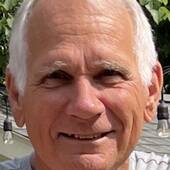"We move out for Manassas in the morning." July 20,1861
Thanks Mike Cooper for posting this. I am proud to say that my Greatgrandfather Vernon Andrew Marsh was wounded in this battle, but recovered so he could be a family man. To do battle he walked from Vermont. It took one month to get the the battlefield. It is hard to imagine what went through his mind at that time. It fatigues me to think about it.
Great post, Mike Cooper.
If you're a history buff, there is no better place to live than the Shenandoah Valley in Virginia. Every inch of the valley exudes history. From the early settlers through the 1900s the valley played one important roll after another.
One of the more notable periods in US history was the Civil War. July 21st is the 150th anniversary of the First Battle Of Bull Run. Or, if you're not
from the area you might call it the First Battle of Manassas. It was the first major battle of the war, and it was the first revelation to President Lincoln, and the Northern armies, that this was not going to be a weekend event. This was going to be war with all of its horrors.
A friend of mine was involved in a remodel of a building in downtown Winchester, VA. The building was called 9 Court Square. That area was made famous by Mort Kunsler in two of his paintings, "After the Snow" and "The Palace Bar." Both paintings are centered in the downtown area of
Winchester. Ironically, what you can see in the paintings exists today in that same square.
When Dana was remodeling the 9 Court Square building he found a large heavy safe. Once the construction crew was called in to move the safe Dana found something very interesting. Behind the safe was a diary. He picked it up and began to read portions of the diary, and the last entry said, "We move out for Manassas in the morning."
That entry was written by a Union soldier the night before he shipped out to Manassas for what we now know was the First Battle of Manassas (Bull Run). Nobody knows what the end result was of that soldier, but his final thoughts before leaving Winchester, VA are still speaking to us today.
The First Battle of Manassas (Bull Run) was a Confederate victory. It was supposed to be a single battle and a major Union victory that would end the Southern uprising once and for all. People from Washington and the surrounding area came to Manassas to watch the battle as if it was a re-enactment rather than a real battle. They sat on hillsides with picnic baskets full of food, and children played.
Once the cannons bellowed from both sides, and the mini-balls flew, it became obvious that this was not going to be a performance. The Union quickly took the upper hand, but it was soon reversed with the arrival of Thomas J. Jackson. He would go on to be called Stonewall Jackson
because he stood firm and rallied his men, and they sent Union forces running back to the nations capital in retreat.
The 150th anniversary of this battle marks a difficult time in this country, but the country has gone on to become an even greater country with more battles to fight and more challenges to conqueror. God bless the men who fought and struggled 150 years ago, and God bless the strength of this country that they valiantly demonstrated on July 21, 1861.
(Disclaimer: All grammatical mistakes, punctuation breakdowns and misspellings are purely for your amusement and entertainment. Feel free to cackle.)



Comments(2)